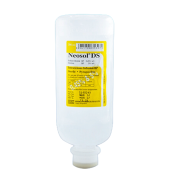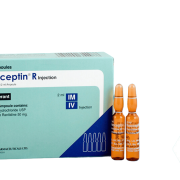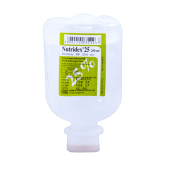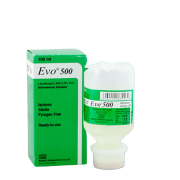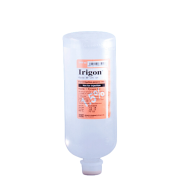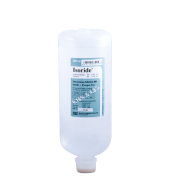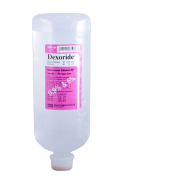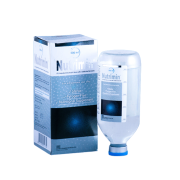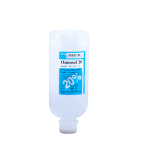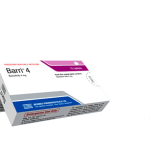Saloride
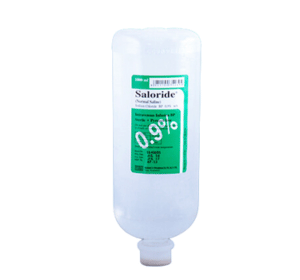
Generic Name: Sodium Chloride 0.9%
Dosage Form: Saline
TG Name: Intravenous Fluids
1. What Saloride® is and what it is used for?
Saloride® is a sterile solution of Sodium Chloride in water for injection. Each 100 ml solution contains Sodium Chloride B.P. 0.9 gm. Isotonic (0.9% w/v) Sodium Chloride infusion is used in sodium and water depletion. For instance, in the management of metabolic alkalosis, in case of gastro-enteritis, during and after surgery. It may also be used as a priming fluid for haemodialysis procedures. Sodium Chloride 0.9% infusion is often used as diluents for infusion of drug additives etc. It is widely used for sterile irrigation and dilution process.
2. Before you take Saloride®
Take special care with Saloride®
Check with your doctor before taking this medicine if:
Serum electrolyte concentration should be carefully monitored. Sodium Chloride should be administered with caution to patients with congestive heart failure, peripheral or pulmonary oedema, impaired renal function or pre-eclampsia. Care should also be taken when administering Sodium Chloride intravenously to very young or elderly patients. Excessive administration should be avoided as this may result in hypokalaemia.
Pregnancy and breast-feeding
Pregnancy Category C: Animal reproductive studies have not been conducted with Sodium Chloride Injection USP 0.9%. It is also not known whether Sodium Chloride Injection USP 0.9% can cause fetal harm when administered to a pregnant woman or can affect reproduction capacity. Sodium Chloride Injection USP 0.9% should be given to a pregnant woman only if clearly needed.
3. How to take Saloride®?
Taking this medicine. Always use Saloride® exactly as your doctor has told you. You should check with your doctor or pharmacist if you are not sure.
How much to take?
The concentration and dosage of Sodium Chloride solution for intravenous use is determined by several factors including age, weight and clinical condition of the patient. Usually the adult dose is about 1000 ml of 0.9% injection.
4. Possible side effects
Reactions which may occur because of the solution or the technique of administration include febrile response, infection at the site of injection, venous thrombosis or phlebitis extending from the site of injection, extravasation, and hypervolemia. If an adverse reaction does occur, discontinue the infusion, evaluate the patient, institute appropriate therapeutic countermeasures and save the remainder of the fluid for examination if deemed necessary.
Tell your doctor if any of the side effects gets serious or lasts longer than a few days, or if you notice any side effects not listed in this leaflet
5. How to store Saloride®?
Saloride® should be stored at controlled room temperature.


